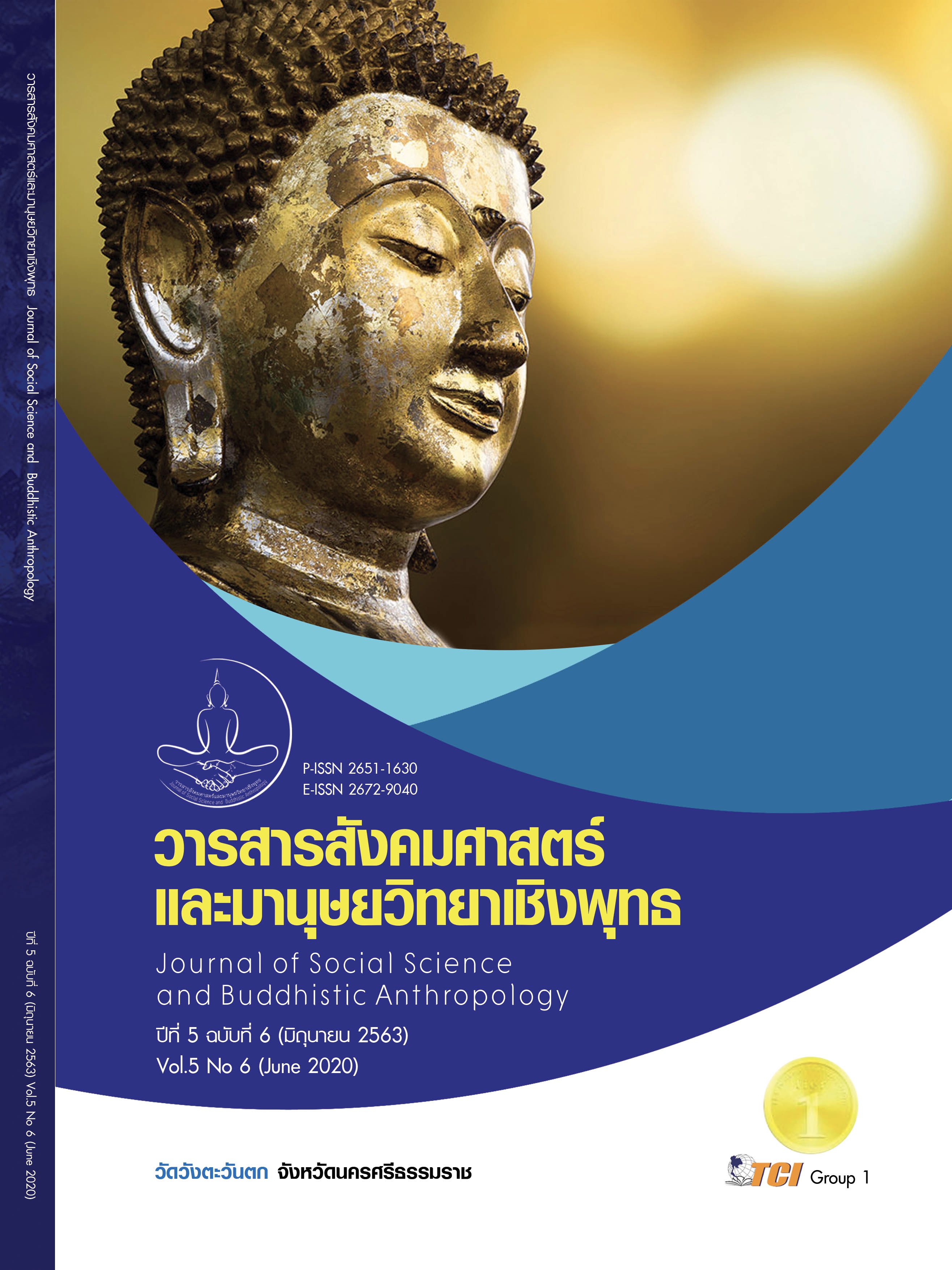THE ANALYSIS OF THE INFLUENCE OWNERSHIP STRUCTURE OF VALUE RELEVANCE OF ACCOUNTING INFORMATION IN LISTED COMPANIES ON THE STOCK EXCHANGE OF THAILAND
Keywords:
Ownership Structure, Value Relevance of Accounting Information, The Listed Companies In The Stock Exchange Of ThailandAbstract
This article of aimed to check on the conformity between the developed model and the empirical data; thus, to test on the structural influence of ownership structure the values relevance of accounting information of the listed companies in the Stock Exchange of Thailand. The author conducted literature review on the relevant document, textbooks, and researches then, collected data from the listed companies Stock Exchange of Thailand using the paper for data collection through form 56-1 on the annual company report. Research samples were the listed companies in the Stock Exchange of Thailand. There were 1,200 samples which were the listed companies in the Stock Exchange of Thailand for 5 years between B.E. 2556 – 2560 as retrieving from purposive sampling method. The statistics used for data analysis were the average and standard deviation. The statistics used for hypothesis testing were the analysis of SEM and Path analysis. It was found that the causal relationship model of the influential factors value relevance of accounting information to the hypothesis was conformed to the empirical data. The test of shareholder structure influences toward the values of accounting information was found that the ownership structure, the ratio of foreign ownership, the ratio of institution ownership, the ratio of government ownership, the ratio of Managerial ownership, and family ownership had a positive influence value relevance of accounting information. Since the characteristics of the structure of shareholder could lead to the value relevance of accounting information that would result on the decision of investors. The analysis on the association of the accounting information was used to generate the new knowledge on the administration of each characteristic of ownership structure that could influence on the credibility of financial information.
References
กัลยา วานิชย์บัญชา. (2557). การวิเคราะห์สถิติ สถิติสำหรับการบริหารและวิจัย. กรุงเทพมหานคร: จุฬาลงกรณ์มหาวิทยาลัย.
คณะกรรมการตลาดหลักทรัพย์แห่งประเทศไทย. (2559). รายงานประจำปี 2559. กรุงเทพมหานคร: ตลาดหลักทรัพย์แห่งประเทศไทย.
ชัยวัฒน์ วิบูลย์สวัสดิ์. (2560). รายงานประจำปี 2560 ตลาดหลักทรัพย์แห่งประเทศไทย. เรียกใช้เมื่อ 16 พฤษภาคม 2560 จาก https://www.set.or.th/th/about /annual/files/annual_report_2559_thai_full.pdf. Annual report 2016
ตลาดหลักทรัพย์แห่งประเทศไทย. (2561). ข้อมูลบริษัท/ หลักทรัพย์. เรียกใช้เมื่อ 16 พฤษภาคม 2561 จาก https://www.set.or.th/set/mainpage.do? language=th&country=TH
ปิยะณัฐ ถุนพุทธดม และคณะ. (2561). ผลกระทบของโครงสร้างผู้ถือหุ้นที่มีต่อผลการดำเนินงานของบริษัทจดทะเบียนในตลาดหลักทรัพย์แห่งประเทศไทย. ใน การประชุมวิชาการและนำเสนอ UTCC Academic Day ครั้งที่ 2 8 มิถุนายน 2561. มหาวิทยาลัยหอการค้าไทย.
Andow, A. & David, M. (2016). Ownership structure and the financial performance of listed conglomerate firms in Nigeria. The Business & Management Review, 7(3), 231-240.
Asadi, A. & Pahlevan, M. (2016). The Relationship between Ownership Structure and Firms'Performance in Tehran Stock Exchange. Journal of Insurance and Financial Management, 1(2), 72-86.
Ball, R. & Brown, P. (1968). An empirical evaluation of accounting income numbers. Journal of accounting research, 6(2), 159-178.
Easton, P. D. (1999). Security returns and the value relevance of accounting data. Accounting horizons, 13(4), 399-412.
Friska, H. & Reteo, K. (2013). Analysis of ownership structure effect on economic value added. Bisnis & Birokrasi Journal, 20(3), 171-178.
Hass, C. (2013). Writing technology: Studies on the materiality of literacy. New York: Routledge.
Hayati, M. et al. (2015). The Effect of Intellectual Capital to Value Relevance of Accounting Information Based on PSAK Convergence of IFRS. Social and Behavioral Sciences, 211(2015), 999 – 1007.
Jensen, M. C. & Meckling, W. H. (1979). Theory of the firm: Managerial behavior, agency costs, and ownership structure. Journal of Financial Economics, 3(4), 305-360.
Lina, Y. & Fub, M. (2017). Does institutional ownership in fluence firm performance? Evidence from China. International Review of Economics and Finance, 49(C), 17–57.
Najid, N. A. & Rahman, R. A. (2011). Government ownership and performance of Malaysian government-linked companies. International Research Journal of Finance and Economics, 61(1), 1450-2887.
Nasrin, A. et al. (2019). The Quality of accounting information: Relevance or Value-Relevance? Asian Journal of accounting Perspectives, 12(1), 1-21.
Novitasari, T. & Januarti, I. (2009). Pengaruh struktur kepemilikan terhadap kinerja intellectual capital. Journal Akuntansi & Auditing, 5(2), 95-111.
Shamki, D. & Al - Arussi, A. (2015). Ownership Structure Impacting Value Relevance of Accounting Information. International journal of Emerging research in Management & Technology, 4(1), 5-11.
Wang, J. & Wang, X. (2015). Benefits of foreign ownership: Evidence from foreign direct investment in China. Journal of International Economics, 97(2), 325-338.









